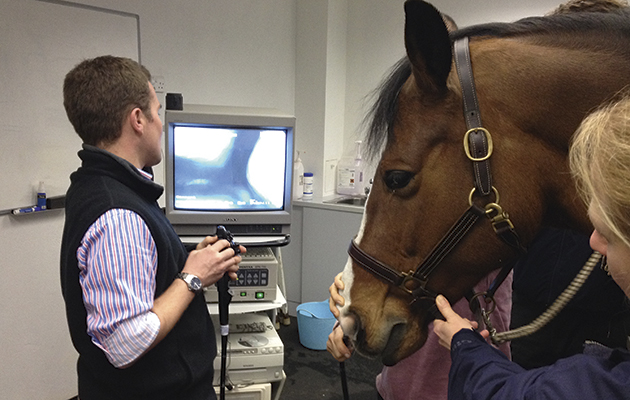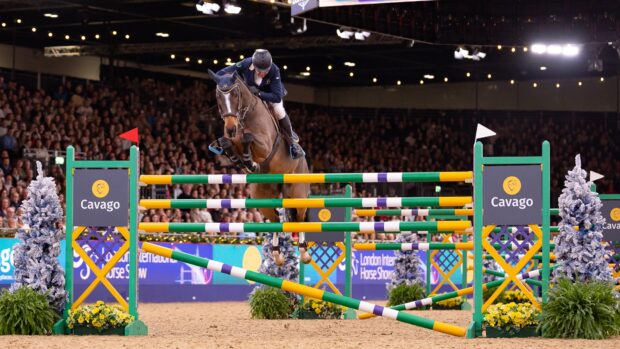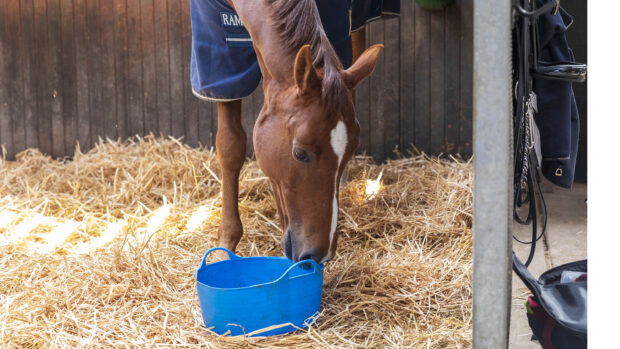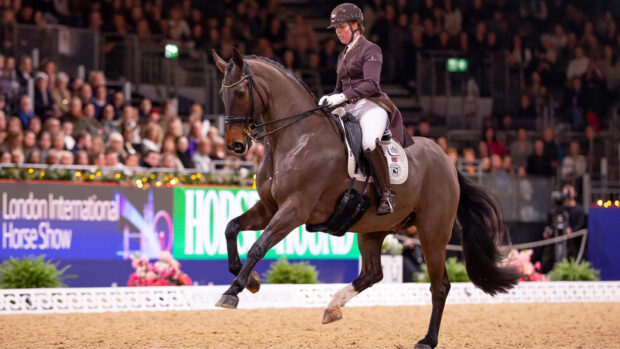Cribbing horses are more likely to be reacting to stress than to stomach discomfort, a new study has suggested.
Researchers from the Royal Agricultural University (RAU) have found that while crib-biting and gastric ulcers in horses may not be directly linked, stress could be the common denominator.
The study, published in the peer-reviewed Journal of Veterinary Behaviour (March-April 2019), looked for the presence of ulceration, stomach pH, and gastrin — a hormone that stimulates the production of stomach acid.
The team looked at the stomachs of 42 dead horses — half of which were crib-biters — in the two-part experiment.
The RAU team found there was no difference in the concentrations of gastrin producing cells or the acidity in the stomachs between crib biting and non-crib biting horses.
While the sample size and logistics are limitations — as cadavers may not accurately reflect the physiology of the living stomach — the non-invasive approach has shed further light into the conditions.
“These findings suggest that anatomically and physiologically the stomachs from crib-biting and non crib-biting horses, in this study, were not different from each other,” said lead researcher Dr Simon Daniels, of RAU’s school of equine management and science.
“However in both humans and horses gastric ulceration is associated with stress — both environmental stressors and physiological stress, such as from increased free radical production and too few antioxidants.
“Similarly crib-biting behaviour is understood to be a stress coping mechanism for horses. These horses display higher levels of free radicals and reduced antioxidant defences, which is a sign of physiological stress, when compared to non crib-biting horses.”
He added that therefore crib-biting and gastric ulceration may not be directly linked conditions, “but the conditions may be linked together by stress”.
“If this is the case then management of horses that suffer with these conditions — for example by giving nutritional antioxidant support and reducing environmental stress by changing housing or turnout arrangements — may be beneficial in the welfare of this specific group of horses,” said Dr Daniels.
You might also be interested in:

Gastric ulcers: answers to horse owners’ most frequently asked questions
Confusion often surrounds the cause, diagnosis and treatment of gastric ulcers. Richard Hepburn MRCVS draws on the latest veterinary thinking

Subscribe to Horse & Hound magazine today – and enjoy unlimited website access all year round

Owners failing to act to help horses with ulcers
Although awareness is high, fewer people than expected are using recommended methods of managing the condition
For all the latest news analysis, competition reports, interviews, features and much more, don’t miss Horse & Hound magazine, on sale every Thursday




